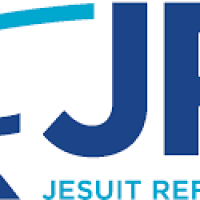An estimated 2.4 billion people worldwide would benefit from rehabilitation at some point in their lives. This number is expected to increase in the coming years due to people living longer and with more chronic disease and disability. The impact of the COVID-19 pandemic on future rehabilitation needs is also yet to be seen. Despite this huge need, rehabilitation services remain limited in much of the world. Where rehabilitation is available, major barriers often persist including lack of funding, leadership, available data and evidence for rehabilitation and functioning, skilled workforce and resources.
To address these challenges, WHO launched the Rehabilitation 2030 initiative in 2017, drawing attention to the increasing unmet need for rehabilitation, and calling for coordinated and concerted global action towards strengthening rehabilitation in health systems. WHO is now undertaking a series of activities to accelerate action and support progress in countries. Three such activities include:
- Building research capacity and expanding the availability and utilization of robust policy-relevant evidence for rehabilitation, with a particular focus on health policy and systems research (HPSR).
- Development of a virtual training course for WHO partners and colleagues working at Regional or National levels.
- Strengthening rehabilitation advocacy, to raise awareness about rehabilitation amongst all stakeholders and to establish rehabilitation as a global political priority. In 2024 this area of work will include ongoing coordination of the World Rehabilitation Alliance (a WHO-hosted global network of stakeholders whose mission is to support the implementation of the Rehabilitation 2030 initiative through advocacy activities).
WHO Rehabilitation Programme is seeking a consultant with experience in health policy and systems research and strong technical writing skills to contribute to this work.
Deliverables
- Output 1: Contribute to initiatives for strengthening health policy and systems research for rehabilitation for 2023-30.
- Deliverable 1.1: Drive the implementation of the HPSR strategy work.
- Deliverable 1.2: Prepare and organise at least 3 collaborating center network meetings.
- Deliverable 1.3: Facilitate and contribute to HPSR work in at least 2 countries, by working with the Regional Advisors to develop research strategy and implementation plans for rehabilitation.
Expected delivery date: August 2025.
- Output 2: Develop a virtual training course for WHO teams and partners to better orient to the Rehabilitation 2030 actions.
- Deliverable 2.1: Agree on outline and structure of the programme.
- Deliverable 2.2: Develop the content and structure of the course, working with the relevant team members of the rehabilitation programme and an educational design expert.
Expected by: April 2025.
- Output 3: Serve as Secretariat focal point for the World Rehabilitation Alliance (WRA) research workstream, providing technical and strategic input to the workstream co-chairs and members.
- Deliverable 3.1: Contribute to the development of the WRA research workstream 2-year workplan.
- Deliverable 3.2: Provide regular written and verbal updates to the WHO Rehabilitation Programme on workstream processes and activities.
Expected by: August 2025.
Qualifications, experience, skills and languages
Educational Qualifications:
Essential:
- University degree in medicine or a rehabilitation science (such as physiotherapy, or occupational therapy).
- Advanced university degree in public health, international health, epidemiology or a related field.
Experience:
Essential:
- At least 5-10 years of experience working on rehabilitation-related projects.
- Demonstrated experience conducting rehabilitation-related health policy and systems research (at least three publications).
- Experience in developing and delivering teaching and training for rehabilitation.
- Demonstrated experience in writing policy briefs.
Desirable:
- Previous experience working with WHO or another multilateral organization.
Skills:
Essential:
- Advanced technical knowledge in public health, workforce, and rehabilitation.
- Excellent skills in data synthesis, evaluation and reporting, including in country reports and academic publications.
- Excellent skills in evidence synthesis and appraisal.
- Excellent written and verbal communication skills.












